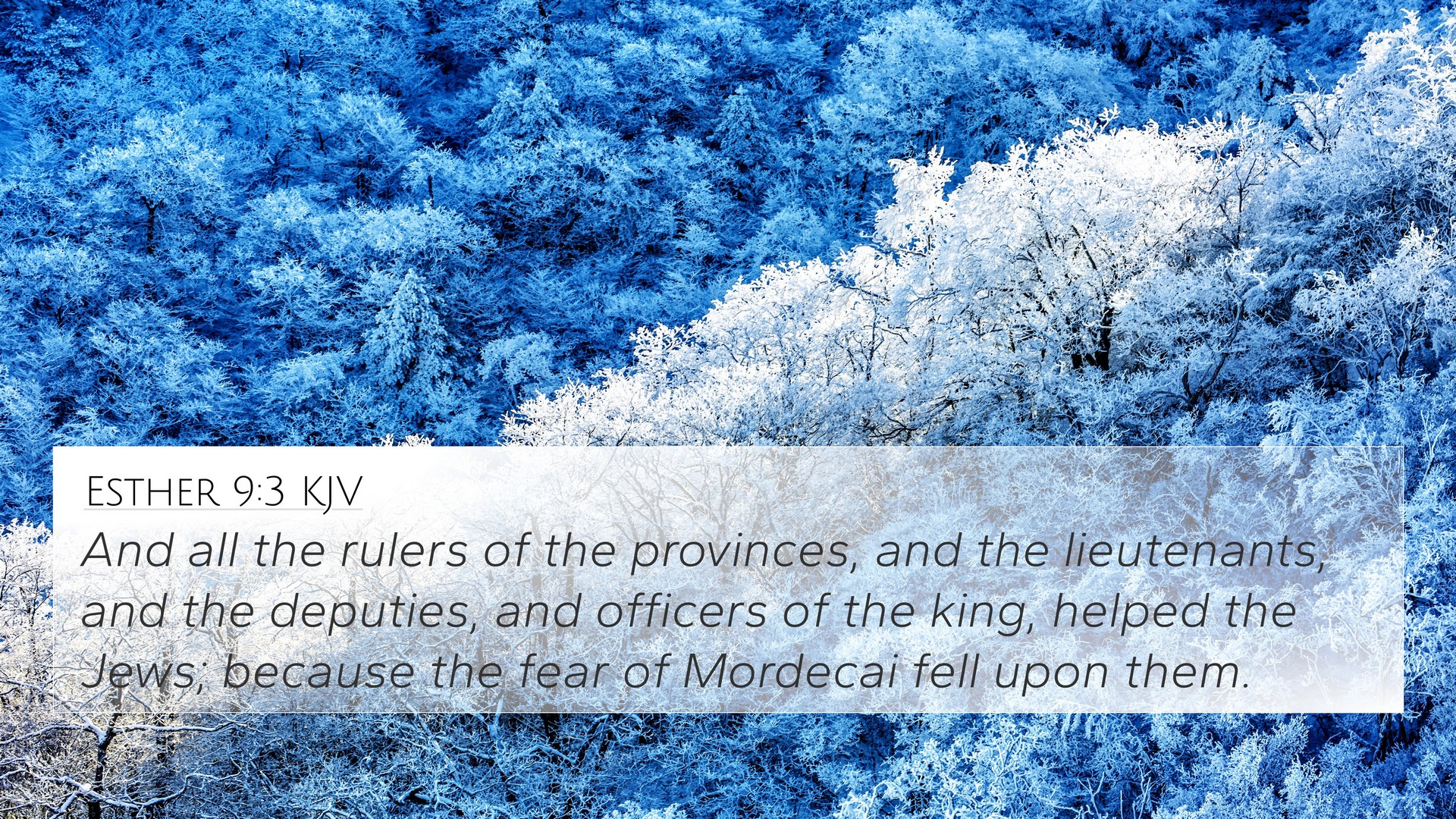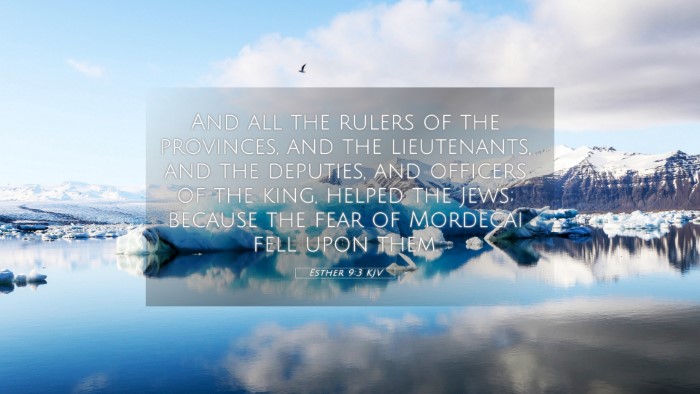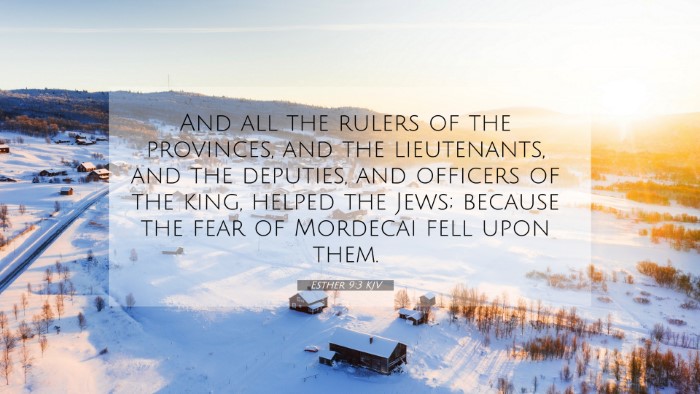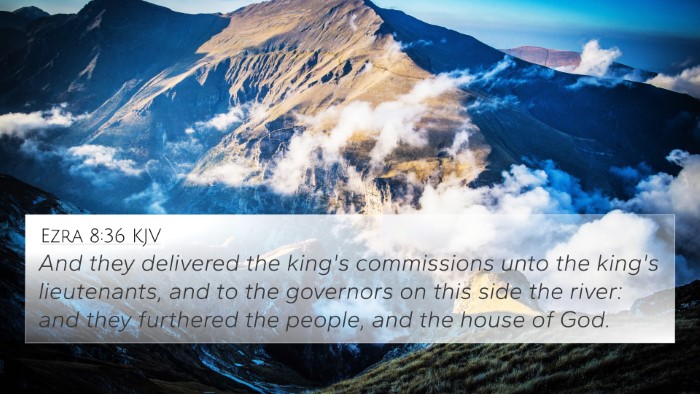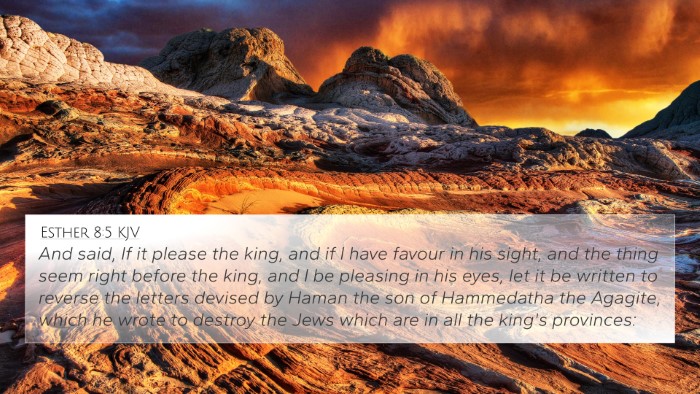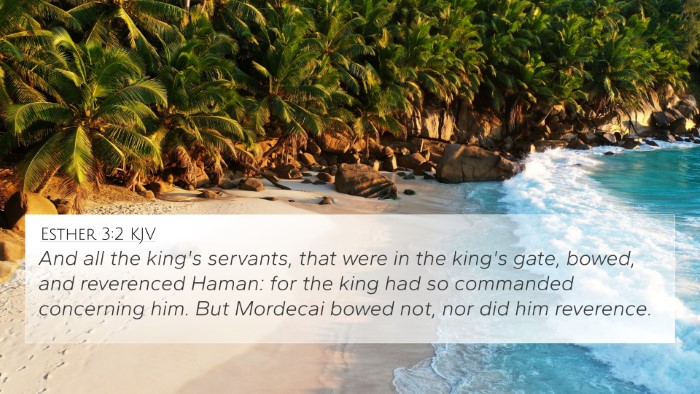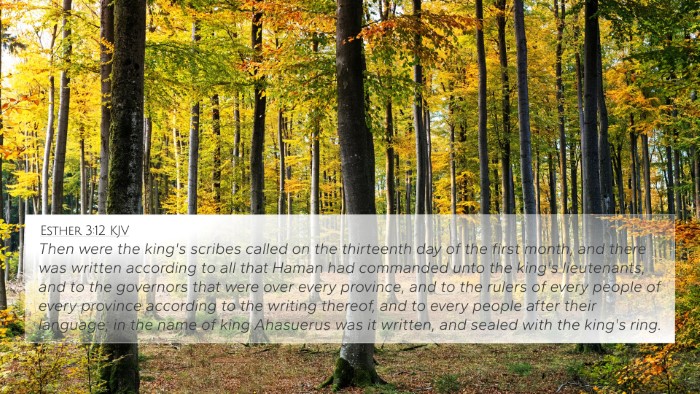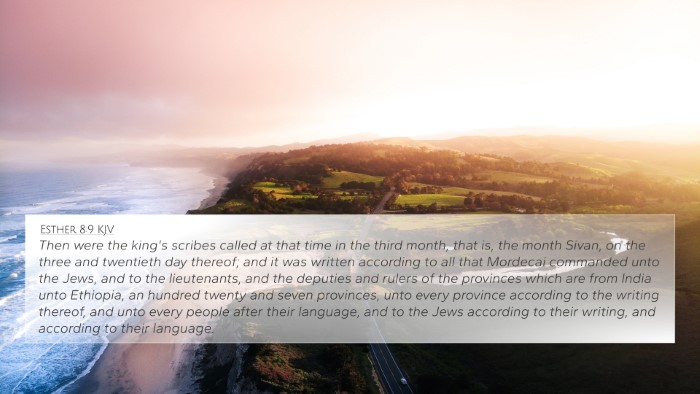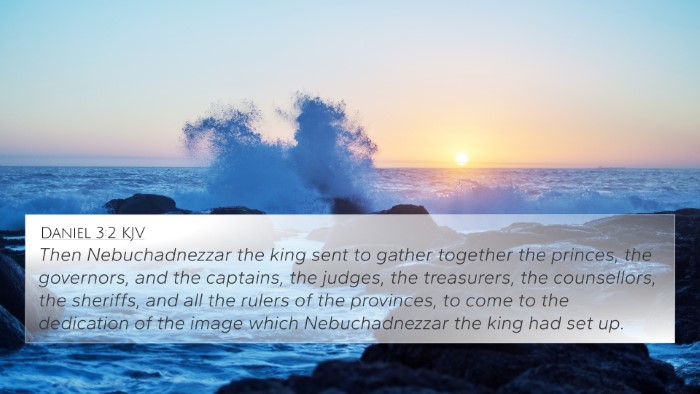Understanding Esther 9:3
Esther 9:3 offers a profound glimpse into the unity of God's people as recorded in the context of the Purim festival. This verse states:
"And all the rulers of the provinces, and the lieutenants, and the deputies, and the officers of the king, helped the Jews; because the fear of Mordecai fell upon them."
Verse Meaning and Interpretation
This verse illustrates the significant transition of power and recognition that Mordecai achieved, showcasing God's providential hand in the life of the Jews during a perilous time. The assistance from rulers and officials signifies a shift not only in political dynamics but also in societal perceptions of the Jewish people, emphasizing the theme of divine justice.
Commentary Insights
We derive deep insights from public domain commentaries, specifically those by Matthew Henry, Albert Barnes, and Adam Clarke:
- Matthew Henry: Henry highlights that the rulers acted out of fear and respect for Mordecai's position, an illustration of how God can turn the hearts of leaders in favor of His people. This fear was rooted in recognition of Mordecai’s wisdom and authority.
- Albert Barnes: Barnes points out that the unity of purpose among the rulers demonstrates the collective resolve to support the Jews as a response to the perceived threat from their enemies. It underscores the importance of alliances during times of adversity.
- Adam Clarke: Clarke emphasizes the transformation of Mordecai's public image, as he transitioned from a captive to a figure of power and influence. This change represents God's faithfulness to His covenant people.
Thematic Connections and Cross-References
Esther 9:3 connects with various Bible verses to enhance understanding of its themes, which include fear of God, divine protection, and justice:
- Proverbs 21:1: "The king's heart is in the hand of the LORD, as the rivers of water: he turneth it whithersoever he will." This scripture emphasizes God's sovereignty over rulers, similar to the influence Mordecai had.
- Isaiah 54:17: "No weapon that is formed against thee shall prosper..." highlights divine protection over God's people, paralleling the safety the Jews felt in the support they received.
- Psalm 118:6: "The LORD is on my side; I will not fear: what can man do unto me?" mirrors the sentiment of courage shown by the Jews as they relied on God during their time of delivery.
- Romans 8:31: "What shall we then say to these things? If God be for us, who can be against us?" This New Testament assurance parallels the Old Testament display of God’s protection in Esther's narrative.
- Zechariah 2:8: "...for he that toucheth you toucheth the apple of his eye." This verse reinforces the idea that God’s people are cherished and defended—much like the Jews in Esther's time.
- Revelation 12:10-11: Outlines the continual struggles God's people face and how they are ultimately victorious—just as the Jews celebrated their victory during Purim.
- Exodus 14:14: "The LORD shall fight for you, and ye shall hold your peace," resonates with the passive yet powerful stance the Jews held in faith during their resurgence against their enemies.
Linking Thematic Bible Verse Connections
This verse serves as a significant point for exploring the broader narrative of God's relationship with His people. The interconnectedness can be further studied through cross-referencing biblical texts and thematic Bible verse connections:
Tools for Bible Cross-Referencing
Utilizing a Bible concordance or a cross-reference guide can deeply enrich your study and understanding of Esther 9:3. Here are some methods for effective cross-referencing:
- Identify Connections: Look for terms or characters that appear across the Bible to discern thematic links.
- Study Context: Understand the surrounding verses to grasp the full narrative context that supports Esther 9:3.
- Use Comparative Bible Verse Analysis: Examine how similar themes are treated in different books of the Bible.
Summary of Insights and Final Thoughts
Esther 9:3 illustrates a pivotal moment where God's providence becomes evident through secular authorities recognizing and supporting His people. It represents themes of divine justice, protection, and the transformative power of faith. The connections to various other scriptures offer a more profound understanding of how inter-Biblical dialogue enriches interpretations of individual verses.
Further Study and Reflection
To engage deeper with Esther 9:3, consider how its themes resonate with modern faith experiences. Reflect on the relevance of God’s protection and the importance of unity among believers in facing adversity.
